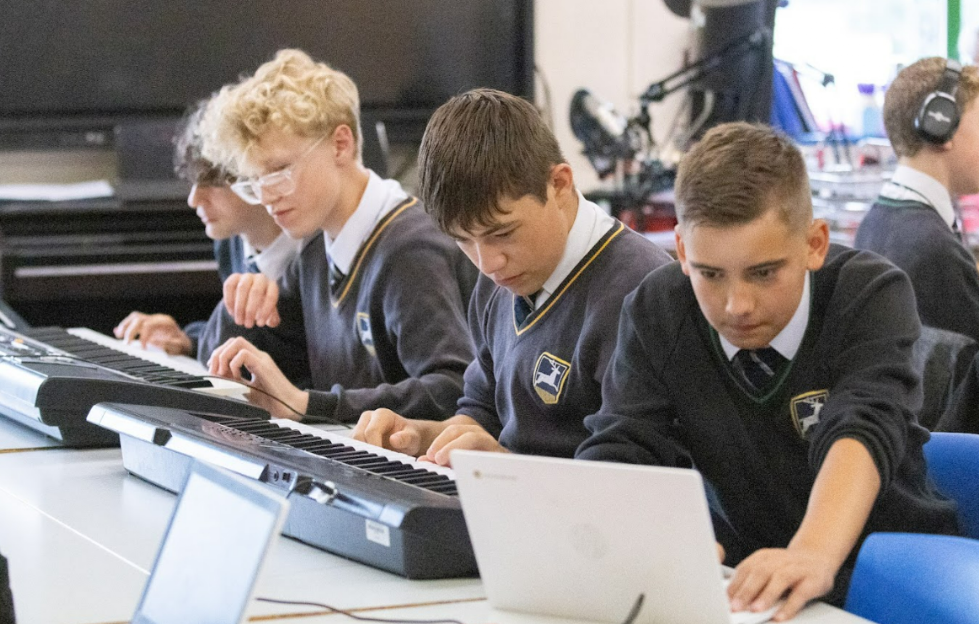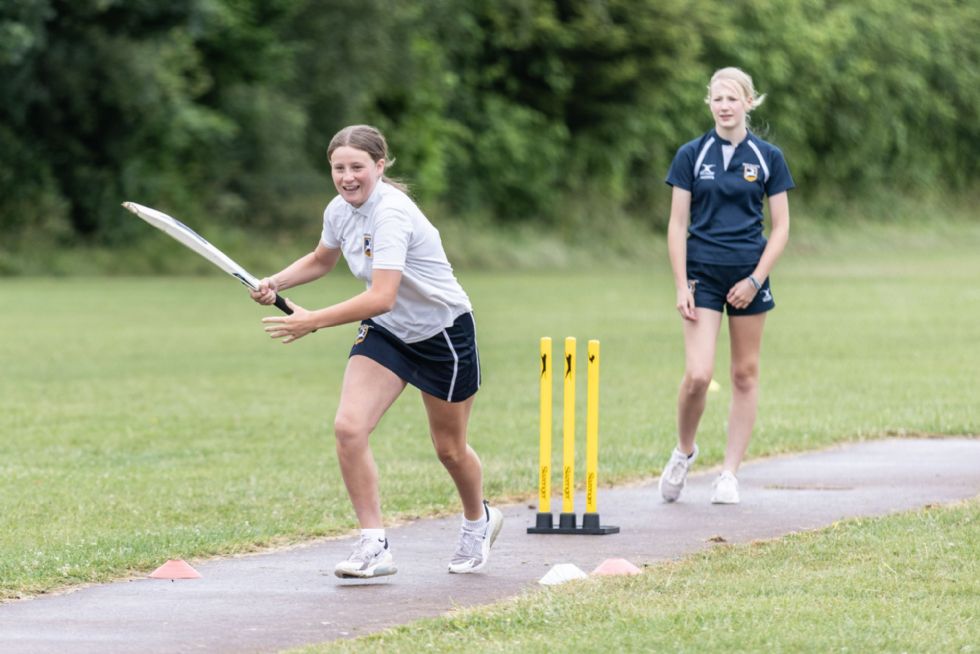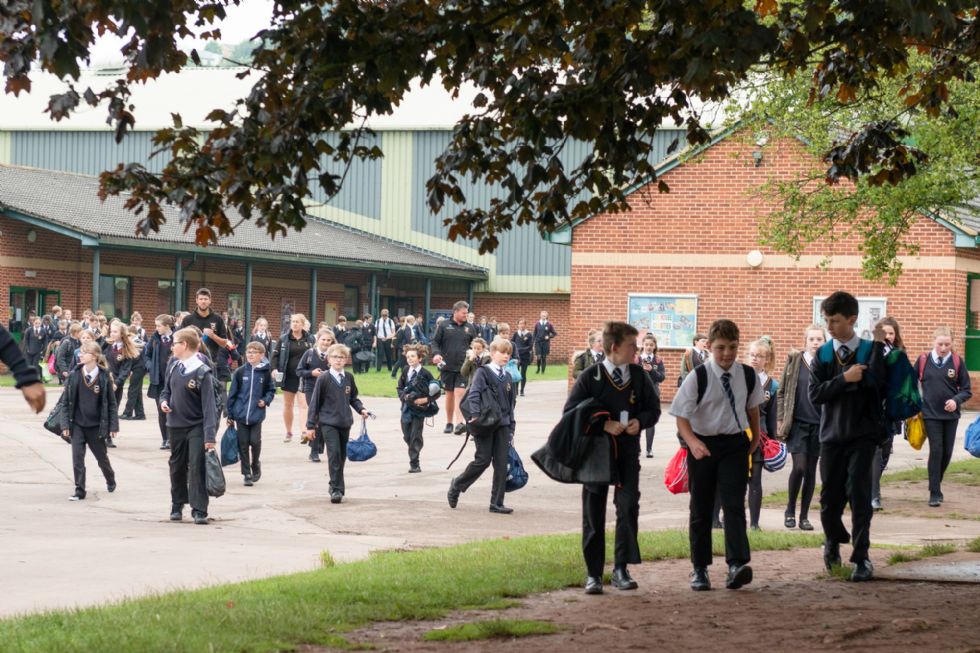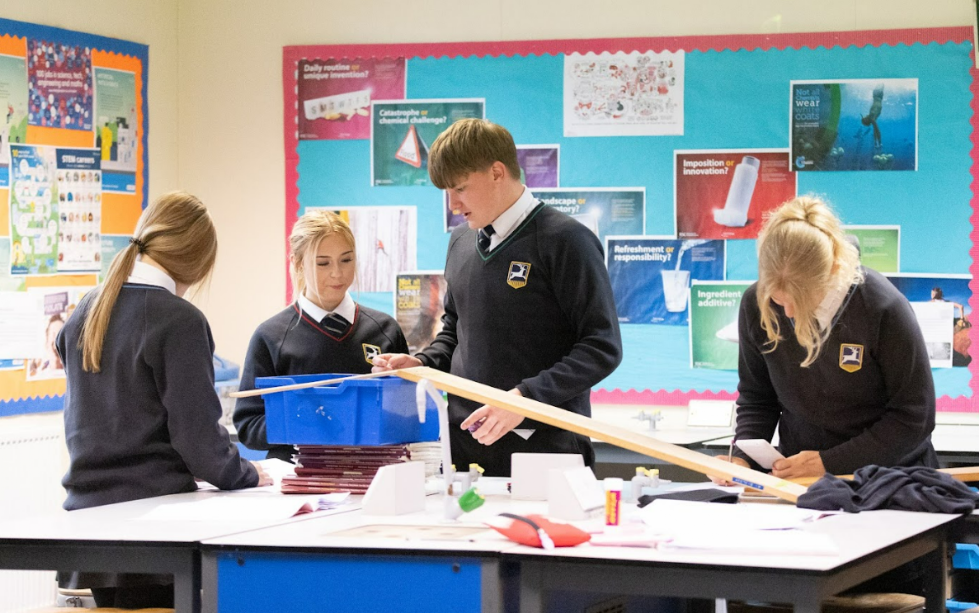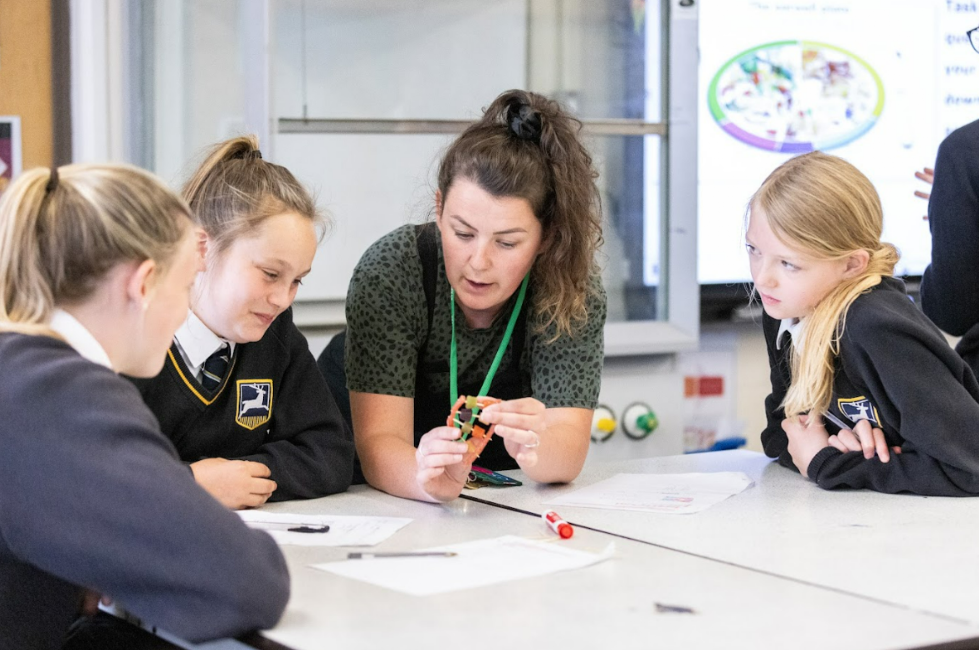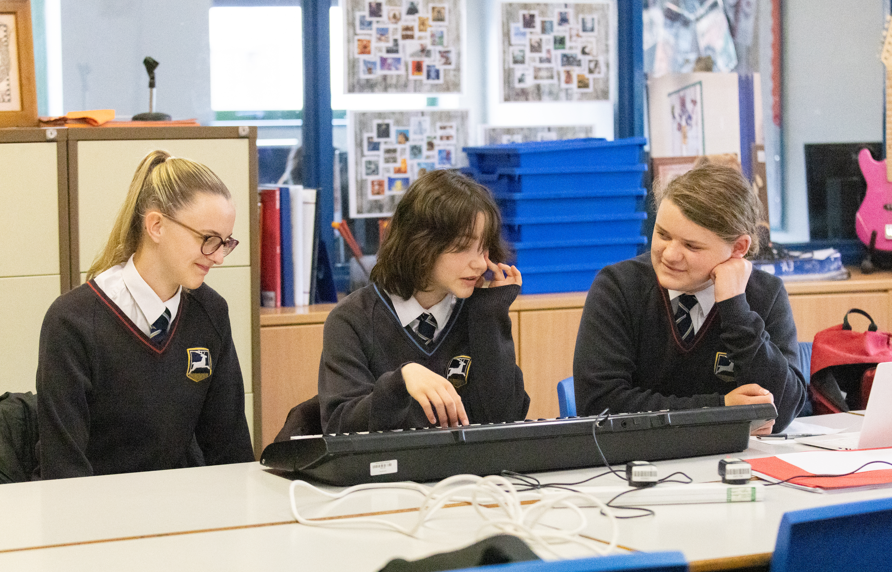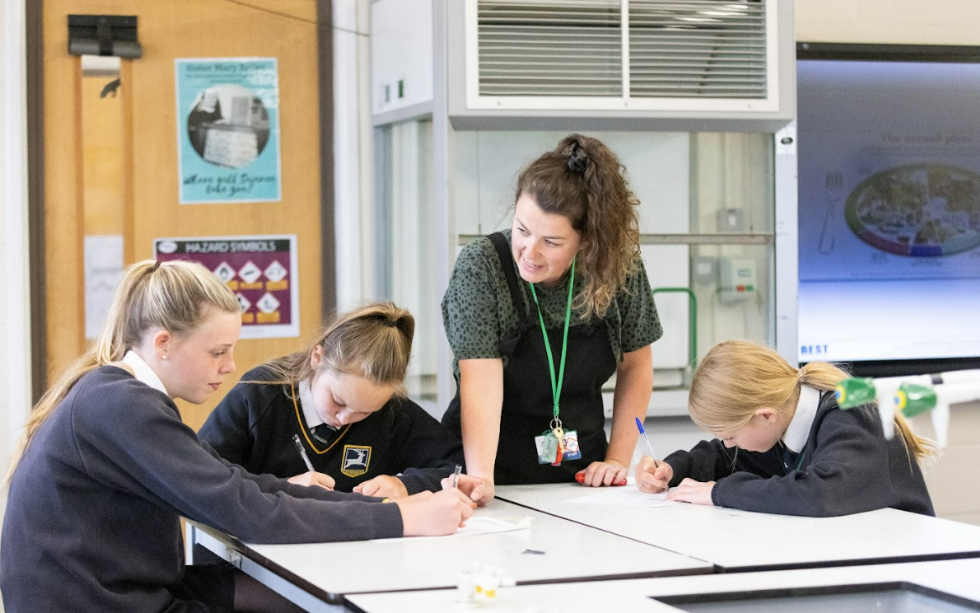English
Key Stage 3
English is the medium through which every subject is delivered. Thus, the teaching of English should enable every student to be able to communicate, using the written and spoken word to the best of their ability. Our English department aims to provide a broad curriculum which allows students to challenge themselves, learn from different cultures and use this knowledge to build a successful future. We encourage our students to work to the best of their potential, enjoy the process and then go off into the world with the skills that they have learnt at Dene Magna. It's always fantastic to see ex-students return to the Forest of Dean and give back to our community.
We understand that COVID has impacted students and their families significantly, and have made changes to our curriculum to help ensure that students are still able to thrive within their English studies, despite any disruption they may have faced. This includes text choice (confronting certain RSHE topics), breadth of text types, as well as giving plenty of opportunity for students to write and read and express opinions. We also offer extra-curricular opportunities with a residential trip to London in Y8 and a cross-curricular trip to the Imperial War Museum in Y9.
KS3 topics:
Year 7:
Contemporary Fiction; Introduction to Shakespeare; A History of Language; Detective Fiction writing; Media and Non-Fiction (Prejudice and Protest) and An Introduction to Poetry.
Year 8:
Study of Literature in the Modern Society, such as Ghost Boys or Wolf Road; Presenting short stories, such as myths and legends; Closer study of a whole Shakespeare play on a particular theme; Study of Global Poetry; An introduction to the 19th century through the study of a nineteenth century novel or novella and a topical non-fiction study, such as autobiographies.
Year 9:
We begin the year with a study of war literature, looking at famous war poets such as Wilfred Owen; Narrative writing, focusing on shaping a narrative; developing understanding of 19th century with a study of Dickens' World; Shakespeare's Tragedies and beginning the GCSE Literature course by studying both conflict and love clusters of poetry from within the GCSE Poetry Anthology.
ILT: Individually tailored spelling course pathway using Spellzone (to be completed weekly). Accelerated Reader and Reading ILTs set as a guidance, termly.
Out of classroom opportunities: Theatre visits as well as involvement in the ‘Carnegie Medal Winner of Winners’ debate. We also have a visit from at least one author per year. Examples include Chris Bradford, Alan Gibbons and Tanya Landman. As well as this, Year 7s get to receive a free book of their choice as part of the Book Buzz scheme.
Accelerated Reader is also encouraged throughout KS3, linking to the school's house competition.
Key Stage 4
The impact of the KS3 English curriculum at Dene Magna is that it deliberately widens students'' cultural understanding and encourages a range of reading - both literary and non-literary. At KS4, every student will study and achieve both an English Language and Literature GCSE. We also prepare our students for either English Literature or Language and Literature at KS5. Our results are both consistent and good and in 2024, 76% of students achieved a grade 4+, 58% a grade 5+ and 15% a grade 7+.
Our curriculum uses the same principles as KS3 with clear assessment objectives, retrieval activities to aid memory and build skills. This is also supported by trial exams to ensure our students feel fully prepared for their exams.
Key Stage 4 topics:
Year 10:
Study of a nineteenth-century text, typically A Christmas Carol; Inference and deduction skills for Language; Creative and functional writing also for Language; how to approach all papers; Study of the poetry anthology and Unseen Poetry, the study of a Shakespeare text and a 'modern', post-1914 piece of prose.
Year 11:
Completion of Anthology poetry alongside preparation for approaching all exams. Y11 is bespoke to the individual group and their needs in the lead up to the summer exams. Each teacher will ensure that each group is ready for each element of the course. Year 11 also includes trial exams so that students are aware of the demands of an exam series.
How many lessons per fortnight? 8
ILT: ILT is set once a week, with the expectation that revision is ongoing. Typical ILT could be preparation for timed written pieces, quizzes, quotation retrieval etc. Teachers will also set weekly 'Seneca' tasks for students to complete.
Assessment: Formal assessments take place across the academic year in November and March for Y11 and June for Y10. Smaller assessments are conducted by the classroom teacher at different points throughout the term in response to the needs of the class in Y11 and regularly half-termly for Y10.
Overview
|
Our English curriculum promotes cultural capital and an appreciation of our literary heritage whilst also extending students’ reading skills by studying both character and thematic development via a variety of texts. We revisit and consolidate key skills year-on-year and assess relevant assessment objectives each half-term to review progress. Our curriculum develops both English Language and Literature skills in equal weight in readiness for KS4 and 5. We are also developing our knowledge of the primary curriculum and how we can create a comprehensive and enjoyable curriculum from nursery to Y13 for English via The Forest of Dean Trust. Each lesson is structured with a WALT (We are learning to) and WILFs (What I am looking for) as well as retrieval activities to build on prior learning. ILT is set weekly and includes: a range of activities to aid spelling via Spellzone (KS3), consolidation and extending tasks through Seneca (KS4) and suggested reading to culminate in Accelerated Reader quizzes. Reading for pleasure is something that we promote as a department and school via fortnightly library lessons, a dedicated reading and spelling session twice a week in tutorial and also via extra-curricular opportunities such as the Cheltenham Literature Festival, Book club and Bookbuzz.
|


